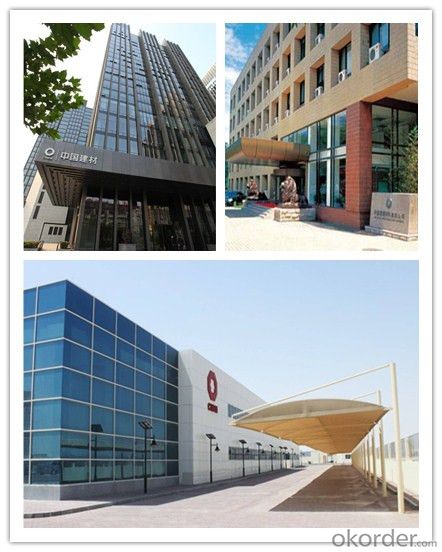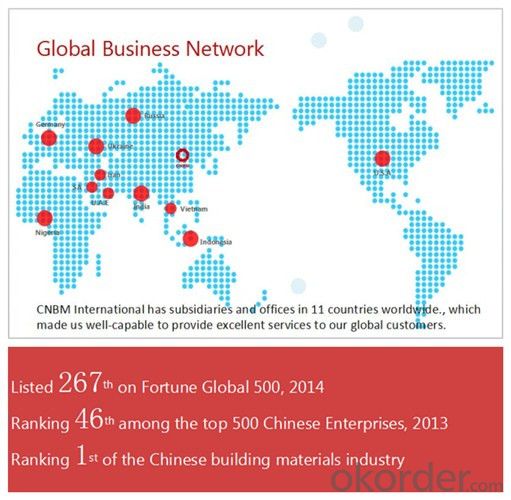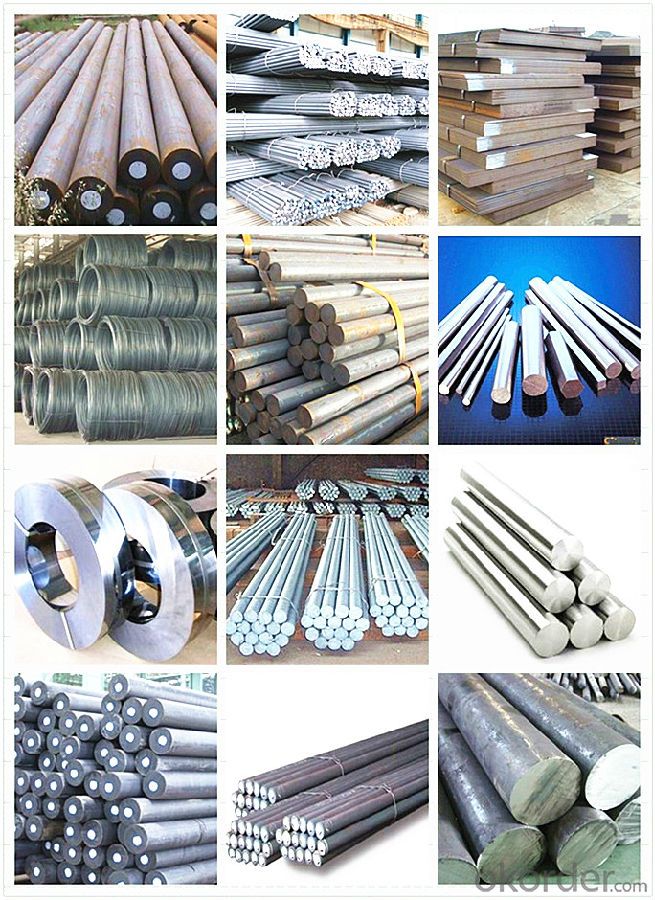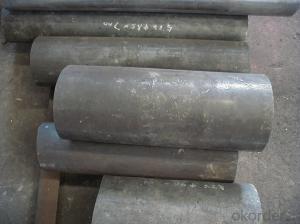Annealed Forged SKD11 Alloy Tool Steel Bar
- Loading Port:
- Qingdao
- Payment Terms:
- TT OR LC
- Min Order Qty:
- 5 m.t.
- Supply Capability:
- 100000 m.t./month
OKorder Service Pledge
Quality Product, Order Online Tracking, Timely Delivery
OKorder Financial Service
Credit Rating, Credit Services, Credit Purchasing
You Might Also Like
Item specifice
Type:
Carbon Steel,Spring Steel,Bearing Steel,Gear Steel,Deformed Steel,Stainless Steel,Alloy Steel
Shape:
Steel Coil,Steel Sheet,Steel Wire Rod,Steel Flat Bar,Steel Square Bar,Steel Angle,Steel Round Bar,Steel Billets
Technique:
Hot Rolled,Cold Rolled,Cold Drawn,ERW,Forged,Saw,Extruded,EFW,Spring
Surface Treatment:
Galvanized,Coated,Copper Coated,Color Coated,Oiled,Dry,Chromed Passivation,Polished,Bright,Black,PVDF Coated
Certification:
ISO,SGS,BV,IBR,RoHS,CE,API,BSI,UL
Thickness:
50-500mm
Width:
50-500mm
Length:
6-12m
Outer Diameter:
50-500mm
Net Weight:
100kg
Packaging:
seaworthy packaging
Annealed Forged SKD11 Alloy Tool Steel Bar
Detailed Information of Annealed Forged SKD11 Alloy Tool Steel Bar
| Name | Steel Round Bar |
| Shape | Round Bar/Square Bar/Flat Bar/Plate/Wire |
| Standard | GB/ASTM/SAE/AISI/DIN/JIS/EN/BS |
| Surface Treatment: | Black/Peeling/Polished/Machined |
| Delivery Condition: | Hot Rolled or Forged/Peeled or Black Surface |
| Test | SGS/UT 100% Elements Testing |
| Certificate: | ISO/Mill Certificate |
| Service: | 24 hours online service / |
| more than 20 years trading and manufacture | |
| Quality Assurance: | the third party inspection, such as SGS, BV, TUV…etc. is acceptable |
| Packaging Details: | Seaworthy Packaging or as per customer's packing instruction |
Product Overviews of Annealed Forged SKD11 Alloy Tool Steel Bar
| Product Name | Typical Grades | Diameter(mm) | Standard Adopted |
| Carbon Steel | 20 (1020/S20C/C22) | ||
| 40 (1040/S40C/C40) | Ø16-Ø300 | ||
| 45 (1045/S45C/C45) | |||
| Bearing Steel | GCr9 (51100/SUJ1) | ||
| GCr15 (52100/SUJ2/100Gr6) | Ø12-Ø250 | ||
| GCr9SiMn (A485-Gr.1/SUJ3) | GB/SAE/ | ||
| Cr-Mo Steel | 20Cr (5120/SCr420H/20Cr4) | JIS/DIN | |
| 40Cr (5140/SCr440/41Cr4) | Ø12-Ø250 | ||
| 42CrMo(4140/SCM440/42CrMo4) | |||
| Gear Steel | 20CrNiMo | ||
| 20CrMn(5115/SMnC420/20MnCr5) | Ø16-Ø600 | ||
| 20CrNiMo(8620/SNCM220/20CrMiMo2) |
Company Introduction of Annealed Forged SKD11 Alloy Tool Steel Bar
CNBM International Corporation is the most import and export platform of CNBM group(China National Building Material Group Corporation) ,which is a state-owned enterprise, ranked in 270th of Fortune Global 500 in 2015.
With its advantages, CNBM International are mainly concentrate on Cement, Glass, Iron and Steel, Ceramics industries and devotes herself for supplying high quality series of refractories as well as technical consultancies and logistics solution.


| After-sale service | l CNBM provides the services and support you need for every step of our cooperation. We’re the business partners you can trust; you can relax and get on with doing business. |
| l For any problem, please kindly contact us at any your convenient time, we’ll reply you in our first priority within 24 hours | |
| Advantages | l Industry experience over 20 years. |
| l Shipment of goods -More than 70 countries worldwide. | |
| l The most convenient transport and prompt delivery. | |
| l Competitive price with best service. | |
| l High technical production line with top quality products. | |
| l High reputation based on best quality products. | |
Packaging & Delivery of Annealed Forged SKD11 Alloy Tool Steel Bar
| Packaging Detail | Sea worthy packing /as per customer's packing instruction |
| Delivery Detail | 15 ~ 40 days after receiving the deposit |
Products Show

FAQ:
| Are you a trading company or manufacturer? | Manufacturer |
| What’s the MOQ? | 1000m2 |
| What’s your delivery time? | 15-20 days after downpayment received |
| Do you Accept OEM service? | Yes |
| what’s your delivery terms? | FOB/CFR/CIF |
| What's the Payment Terms? | 30% as deposit,70% before shipment by T/T |
| Western Union acceptable for small amount. | |
| L/C acceptable for large amount. | |
| Scrow ,Paybal,Alipay are also ok | |
| Why choose us? | Chose happens because of quality, then price, We can give you both. Additionally, we can also offer professional products inquiry, products knowledge train (for agents), smooth goods delivery, excellent customer solution proposals. |
| What's your available port of Shipment? | Main Port, China |
| What’s your featured services? | Our service formula: good quality+ good price+ good service=customer's trust |
| Where are your Market? | Covering more than 160 countries in the world |
- Q:How is bearing steel used in the manufacturing of bearings?
- Bearing steel is used in the manufacturing of bearings due to its high strength and durability. It provides the necessary hardness and wear resistance required to withstand the heavy loads and continuous motion associated with bearing applications. The steel is typically heat-treated and processed to enhance its mechanical properties, such as improved fatigue life and corrosion resistance. This ensures that the bearings can operate efficiently and reliably in various industrial and automotive applications.
- Q:How does wear-resistant steel protect against abrasive wear?
- Wear-resistant steel protects against abrasive wear by having a high hardness and toughness, which allows it to withstand the abrasive forces and prevent material loss or surface damage. The steel's composition and heat treatment provide it with enhanced resistance to abrasive particles, reducing wear and extending the lifespan of the material.
- Q:What are the common applications of stainless special steel?
- Stainless special steel, also known as stainless steel, has a wide range of applications due to its unique properties and characteristics. Some common applications of stainless special steel include: 1. Construction: Stainless steel is widely used in the construction industry for various purposes such as building facades, roofing, and structural components. Its high strength, corrosion resistance, and aesthetic appeal make it a preferred choice for architects and engineers. 2. Automotive industry: Stainless steel is extensively used in the automotive industry for manufacturing various components such as exhaust systems, mufflers, fuel tanks, and decorative trims. Its resistance to corrosion, heat, and impact makes it ideal for these applications. 3. Aerospace industry: Stainless steel is utilized in the aerospace industry for manufacturing aircraft components, including aircraft frames, engine components, and landing gear. Its exceptional strength-to-weight ratio, high-temperature resistance, and corrosion resistance make it suitable for the demanding conditions of aerospace applications. 4. Medical equipment: Stainless steel is widely used in the medical industry for manufacturing surgical instruments, implants, and medical equipment. Its biocompatibility, resistance to corrosion, and ease of sterilization make it an ideal material for such critical applications. 5. Food processing: Stainless steel is extensively used in the food processing industry for manufacturing equipment such as storage tanks, pipes, and containers. Its hygienic properties, corrosion resistance, and ease of cleaning make it suitable for maintaining the integrity and safety of food products. 6. Chemical industry: Stainless steel finds numerous applications in the chemical industry due to its resistance to corrosion from various chemicals and acids. It is used for manufacturing storage tanks, pipes, valves, and other equipment required in chemical processing plants. 7. Marine applications: Stainless steel is widely used in the marine industry for manufacturing components such as boat fittings, propellers, and underwater structures. Its resistance to corrosion from saltwater and harsh marine environments makes it an excellent choice for marine applications. 8. Energy industry: Stainless steel is utilized in the energy industry for manufacturing equipment such as pipelines, valves, and heat exchangers. Its high-temperature resistance, corrosion resistance, and durability make it suitable for use in power plants, oil refineries, and nuclear facilities. Overall, stainless special steel is a versatile material that finds applications in various industries due to its exceptional properties, including corrosion resistance, strength, durability, and aesthetic appeal.
- Q:What are the different grades of special steel?
- Special steel is classified into various grades based on its chemical composition, physical properties, and intended use. Some common grades include tool steel, stainless steel, alloy steel, and high-speed steel. These grades offer unique characteristics and are utilized in different industries such as manufacturing, construction, automotive, and aerospace.
- Q:How does special steel perform in high-temperature hydrogen environments?
- Special steel is known for its excellent performance in high-temperature hydrogen environments. It exhibits superior resistance to hydrogen embrittlement, corrosion, and material degradation, making it a suitable choice for applications where exposure to high-temperature hydrogen is prevalent. The steel's unique composition and heat treatment processes enhance its mechanical properties and enable it to maintain its structural integrity even in challenging conditions. Overall, special steel demonstrates remarkable performance and reliability when subjected to high-temperature hydrogen environments.
- Q:How does special steel perform in extreme environments?
- Special steel is specifically designed to perform exceptionally well in extreme environments. It has superior resistance to corrosion, high temperatures, and pressure, making it highly reliable and durable. This type of steel can withstand harsh conditions such as extreme cold, intense heat, and corrosive chemicals, ensuring optimal performance and longevity even in the most challenging environments.
- Q:How does special steel contribute to energy efficiency?
- Special steel contributes to energy efficiency in several ways. Firstly, special steel alloys are often used in the manufacturing of energy-efficient appliances, such as refrigerators and air conditioners. These steel alloys have enhanced heat transfer properties, allowing for more efficient cooling and heating processes, thereby reducing energy consumption. Secondly, special steel is commonly used in the construction of energy-efficient buildings and infrastructure. Its high strength and durability enable the creation of lightweight and sustainable structures, which require less energy for heating, cooling, and maintenance. Moreover, special steel plays a crucial role in renewable energy technology. It is used in the production of wind turbines, solar panels, and hydroelectric power plants, enhancing their efficiency and overall performance. The unique properties of special steel, such as corrosion resistance and high tensile strength, make it ideal for withstanding harsh environmental conditions and maximizing energy generation. In summary, special steel contributes to energy efficiency by enabling the development of energy-efficient appliances, constructing sustainable buildings, and optimizing renewable energy technologies. Its utilization in various industries helps reduce energy consumption and promote a more sustainable future.
- Q:What are the different heat treatment furnaces used for special steel?
- Special steel is commonly subjected to various heat treatment processes using different types of furnaces. Each furnace serves a specific purpose and is engineered to create the ideal heating and cooling conditions necessary for the steel to attain its desired properties. One of the furnaces employed for special steel is the annealing furnace. This furnace utilizes a technique called annealing, which entails heating the steel to a specific temperature and then gradually cooling it to enhance its softness and ductility. To prevent oxidation during the process, annealing furnaces are often equipped with controlled atmospheres. Another type of furnace utilized for special steel is the quenching furnace. Quenching is a process that involves rapidly cooling the steel to increase its hardness. Quenching furnaces are designed to provide the required cooling rate and may utilize specialized cooling mediums like oil or water to achieve the desired outcome. Tempering furnaces are also commonly employed for special steel. Tempering involves heating the steel to a specific temperature and subsequently cooling it to enhance its toughness and reduce brittleness. These furnaces enable precise temperature control throughout the tempering process. Furthermore, carburizing furnaces are utilized for special steel. Carburizing is the process of introducing carbon into the surface of the steel to enhance its hardness. Carburizing furnaces are equipped with controlled atmospheres and designed to provide the necessary temperatures and carbon-rich environments for the carburizing process. In summary, the various heat treatment furnaces used for special steel serve distinct purposes such as annealing, quenching, tempering, or carburizing. These furnaces are meticulously engineered to provide the requisite heating and cooling conditions for the steel to achieve its desired properties.
- Q:What are the different surface modification techniques used for special steel?
- Some of the different surface modification techniques used for special steel include heat treatment, electroplating, coatings, and nitriding. These techniques are utilized to enhance the steel's hardness, corrosion resistance, wear resistance, and overall performance in various applications.
- Q:How does special steel contribute to the transportation sector?
- The transportation sector relies heavily on special steel due to the numerous benefits it offers. Special steel plays a pivotal role in improving the efficiency, safety, and overall performance of vehicles. One primary advantage is its high strength-to-weight ratio, which allows manufacturers to reduce vehicle weight without compromising structural integrity. As a result, fuel efficiency improves, emissions decrease, and operating costs are lowered. Furthermore, special steel exhibits exceptional resistance to corrosion, making it especially advantageous in areas with severe weather conditions or exposure to saltwater, such as coastal regions or winter roadways where salt is used for ice melting. This corrosion resistance helps extend the lifespan of transportation infrastructure, such as bridges, tunnels, and railways, thus minimizing maintenance and replacement expenses. Another important aspect is the outstanding impact resistance of special steel. It can withstand heavy impacts and collisions, making it ideal for constructing vehicle frames, body panels, and safety components. This enhances passenger safety and reduces the likelihood of severe injuries during accidents. Special steel also plays a crucial role in producing high-performance engines and powertrains. Steel alloys with specific characteristics, such as high temperature and wear resistance, are utilized in manufacturing critical engine components like pistons, crankshafts, and camshafts. This ensures long-lasting and efficient engine performance, resulting in improved reliability and reduced downtime. Moreover, special steel contributes to advancements in electric and hybrid vehicles. Certain steel alloys possess unique properties that enable the development of lightweight battery packs, electric motor components, and charging infrastructure. These advancements facilitate the shift towards greener transportation options and help decrease the environmental impact of the sector. Overall, special steel has a profound influence on the transportation sector by providing lightweight, durable, corrosion-resistant, and impact-resistant materials. It not only enhances the performance and safety of vehicles but also contributes to the establishment of sustainable and efficient transportation systems.
1. Manufacturer Overview |
|
|---|---|
| Location | |
| Year Established | |
| Annual Output Value | |
| Main Markets | |
| Company Certifications | |
2. Manufacturer Certificates |
|
|---|---|
| a) Certification Name | |
| Range | |
| Reference | |
| Validity Period | |
3. Manufacturer Capability |
|
|---|---|
| a)Trade Capacity | |
| Nearest Port | |
| Export Percentage | |
| No.of Employees in Trade Department | |
| Language Spoken: | |
| b)Factory Information | |
| Factory Size: | |
| No. of Production Lines | |
| Contract Manufacturing | |
| Product Price Range | |
Send your message to us
Annealed Forged SKD11 Alloy Tool Steel Bar
- Loading Port:
- Qingdao
- Payment Terms:
- TT OR LC
- Min Order Qty:
- 5 m.t.
- Supply Capability:
- 100000 m.t./month
OKorder Service Pledge
Quality Product, Order Online Tracking, Timely Delivery
OKorder Financial Service
Credit Rating, Credit Services, Credit Purchasing
Similar products
New products
Hot products
Related keywords
































